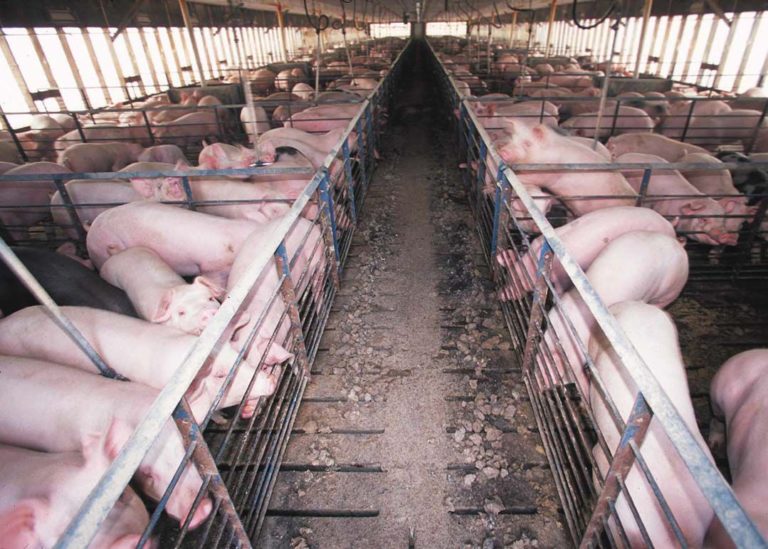
We’ve won a rare opportunity, starting tomorrow Nov. 27, to demand more transparency and better pollution controls from the industrial swine operations in North Carolina that threaten our air and water every day.
These are the industrial operations that sent hog waste coursing through our rivers in the wake of Hurricane Florence, the ones that create a stench so powerful, neighbors can’t hang their wash out to dry on sunny days.
North Carolina has the highest density of hogs of any state in the nation. But state regulations around the 9.5 billion gallons of waste those hogs generate each year are lax and poorly enforced. Almost all of that waste is governed by a general permit that allows it to be kept in unlined open cesspools, often the size of football fields, then sprayed on nearby cropland. When the sprayers are on, neighbors must shut their windows on even the hottest days, or risk droplets of manure and urine blowing into their homes.
The system of cesspools and sprayers is a cheap way for hog producers to manage waste, but it costs North Carolina an uncounted fortune: Toxic emissions from industrial hog operations foul our air, contaminants from hog feces and urine pollute our waters, and neighbors of industrial operations live shorter lives.
The waste management permit is up for renewal. For the first time, thanks to a civil rights settlement that resulted from legal action by Waterkeeper Alliance and its allies, an independent third party will moderate the public meetings about the permit.
The first hearing is scheduled for two sessions, one from 9 am to 4 pm and another beginning at 6 pm tomorrow, Tuesday, Nov. 27 at the Sampson County Exposition Center, 414 Warsaw Rd., Clinton, N.C. 28328.
You can make a difference by attending the meeting and speaking out for better pollution controls and more transparency in the permit.
We’d like to see the state’s Department of Environmental Quality collect or require the collection of data needed to assess hog waste pollution. This includes:
- Mandatory groundwater monitoring when there’s evidence pathogens or antibiotics from industrial animal operations have seeped into groundwater.
- Required use by swine operators of North Carolina’s phosphorus loss assessment tool.
- Monthly electronic submission of reports on the contents of cesspools; the volume and location of spraying, the crops sprayed, and the results of soil monitoring of the fields.
Monthly filing of these reports is important because, under the current system, hog waste pollution records are not filed with the state, so they’re not treated as public records. Thus, the public has no access to information on important public health and environmental quality issues.
Join us in speaking out to defend North Carolina’s creeks, rivers, and lakes from hog waste contamination. Join us in speaking up for hog farms’ neighbors.
If you can make it to a session Nov. 27 meeting at the Sampson County Exposition Center, RSVP here. The 9 am to 4 pm session will include a section-by-section technical review of the permit and the 6 pm evening session will include an opportunity for general comments. If you know someone in the state who might be able to attend, please send them this post.
Speak out! Your voice can make a difference in North Carolina’s hog waste crisis.